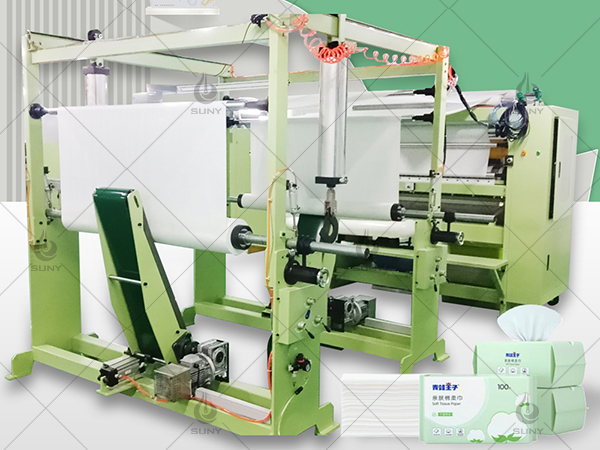-
NewsPosition :Home >
- News> Industry news > contton towel machine at best price in India
contton towel machine at best price in India
2025-08-27 12:06:33India, as the world’s second most populous country, has experienced rapid growth in demand for hygiene products, including cotton wipes. The expansion of the middle class, increasing health awareness, and a shift from high-end consumption to the mass market are driving growth. Indian consumers are particularly price-sensitive, prioritizing value for money, while also demanding softness, absorbency, and durability due to the country’s hot climate. These factors directly influence production equipment selection and pricing strategies.
Current Equipment Landscape
Cotton wipe production equipment in India is predominantly semi-automatic, sourced from local manufacturers or imported from China. Equipment pricing varies widely:
-
Semi-Automatic Three-Row Machines: 80,000–150,000 RMB
-
Fully Automatic Production Lines: 200,000–400,000 RMB
Indian manufacturers prioritize:
-
Affordability and ease of operation
-
Low maintenance requirements
-
High-temperature resistance and voltage adaptability
Chinese equipment, known for cost-effectiveness, holds a significant market share, but must be adapted to India’s 380V/50Hz voltage and hot climate conditions.
Pricing Strategy
A step-by-step pricing approach can effectively target different segments:
-
Entry-Level: Semi-automatic three-row machines – 100,000–120,000 yuan
-
Mid-Range: Fully automatic five-row machines – 250,000–350,000 yuan
-
High-End: Eight-row fully automated production lines – 400,000–500,000 yuan
It is important to include after-sales support, training, and spare parts costs in the price. Offering flexible payment options, such as installments, helps reduce the purchasing barrier for local customers.

Adapting to Local Requirements
Successfully entering the Indian market requires equipment adaptation:
-
Voltage and Heat Resistance: Compatible with 380V/50Hz and high-temperature tolerance.
-
Raw Material Compatibility: Suitable for locally available cotton materials.
-
Service Network: Partner with local distributors to establish spare parts warehouses and a technical support team offering bilingual support in Hindi and English.
-
Market Promotion: Participate in industry exhibitions such as the India International Textile Machinery Exhibition to showcase products and track market trends.
-
Local Assembly: Establishing an assembly plant in India can reduce customs duties and enhance price competitiveness.
Summary
The Indian cotton wipe market is growing rapidly, driven by mass-market consumption, price sensitivity, and climate-specific product demands. Manufacturers targeting India should adopt adapted equipment, a tiered pricing strategy, and a strong after-sales and technical support network. Local partnerships, exhibition participation, and potential assembly operations can further enhance market competitiveness and brand presence.
Previous Page:Next Page:Quick consultationZhengzhou SUNY Industrial Co., Ltd. , a SUNY Group subsidiary, specializes in manufacturing sanitary equipment including wet wipes machines, mask machines and diaper production lines. Headquartered in Zhengzhou, it integrates R&D, production and sales with China's leading sanitary automation expertise.ProductsCopyright: 2011-2025 Zhengzhou SUNY Industrial Co., Ltd. All rights reserved.- Inquiry
- Top
-
